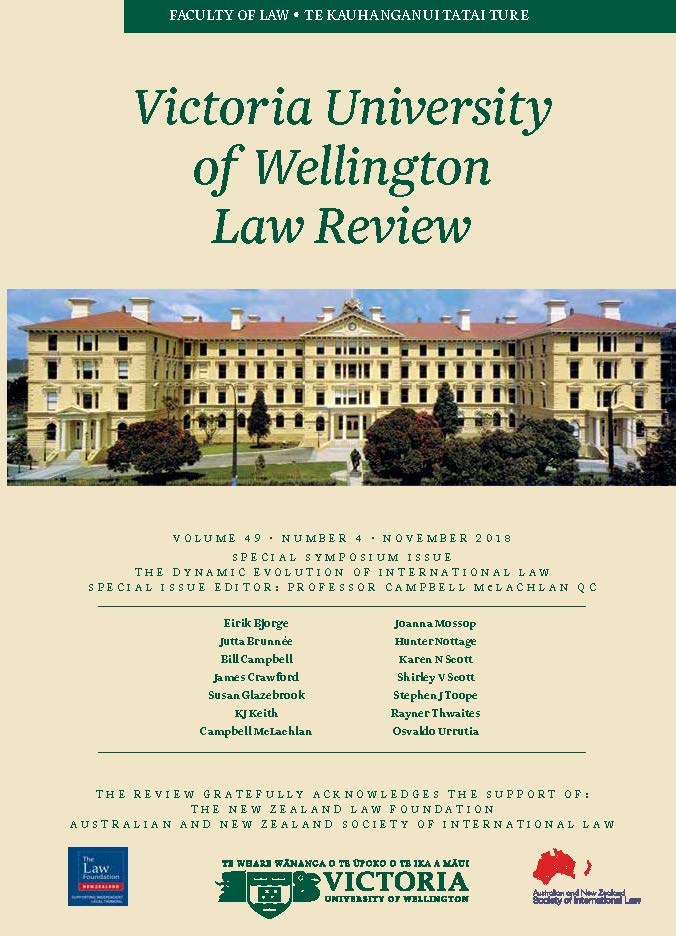The Life and Times of the Genuine Link
DOI:
https://doi.org/10.26686/vuwlr.v49i4.5345Abstract
The genuine link principle has become a standard-bearer for the view that citizenship is, or should be, substantive, in the sense that it is conditioned on the existence of certain "social facts". As such, it has become a source of inspiration in citizenship theory. It is seen to provide a benevolent framework for thinking about citizenship status. Against the tendency to treat "genuine link" as a guiding principle, I argue that it carries within it fundamental problems. These problems have been known for a long time. In particular, they were prefigured in dissents in the decision that introduced the principle, namely the International Court of Justice's (ICJ) decision in Nottebohm, delivered in 1955, in the initial academic legal commentary on that decision, and in the doctrine's subsequent legal reception. Drawing on these sources I argue that genuine link, as employed in Nottebohm, has in doctrinal terms been confined to a historical footnote. In a second strand of the argument, I develop the problems that attend using the genuine link as a beacon, both in theory and practice.
Downloads
Downloads
Published
How to Cite
Issue
Section
License
Authors retain copyright in their work published in the Victoria University of Wellington Law Review.


